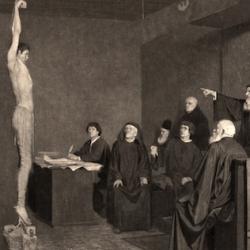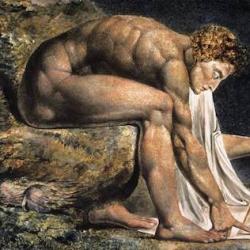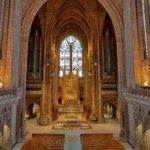In an essay written around 1942, John Maynard Keynes beautifully captured the archaic character of Isaac Newton:
“Newton was not the first of the Age of Reason. He was the last of the magicians, the last of the Babylonians and Sumerians, the last great mind which looked out on the visible and intellectual world with the same eyes as those who began to build our intellectual world rather less than 10,000 years ago. . . Why do I call him a magician? Because he looked on the whole universe and all that is in it as a riddle, as a secret which could be read by applying pure thought to certain evidence, certain mystic clues which God had laid about the world to allow a sort of philosopher’s treasure hunt to the esoteric brotherhood. He believed that these clues were to be found partly in the evidence of the heavens and in the constitution of elements (and that is what gives the false suggestion of his being an experimental natural philosopher), but also partly in certain papers and traditions handed down by the brethren in an unbroken chain back to the original cryptic revelation in Babylonia. He regarded the universe as a cryptogram set by the Almighty-just as he himself wrapt the discovery of the calculus in a cryptogram when he communicated with Leibniz. By pure thought, by concentration of mind, the riddle, he believed, would be revealed to the initiate.”















